Family is the foundation of our society, and when personal relationships turn into legal matters, knowing your rights under family law in Pakistan becomes essential. Whether you’re going through a divorce, a child custody battle, or have questions about marriage laws, understanding how Pakistani family law works can save you time, stress, and financial loss.
As a seasoned family lawyer with decades of experience, I’ve handled countless cases involving marriage disputes, child custody, inheritance rights, and more. Let me walk you through the essentials of family law in Pakistan so that you’re better equipped to make informed decisions.
Family law in Pakistan refers to the branch of law that deals with issues related to marriage, divorce, child custody, maintenance, guardianship, and inheritance. It is primarily governed by Islamic principles and codified in various acts such as.!
The Muslim Family Laws Ordinance, 1961
The West Pakistan Family Courts Act, 1964
The Guardians and Wards Act, 1890
Child Marriage Restraint Act, 1929
These laws are interpreted by Family Courts across Pakistan, which handle personal disputes in a way that ensures justice, fairness, and preservation of family values.
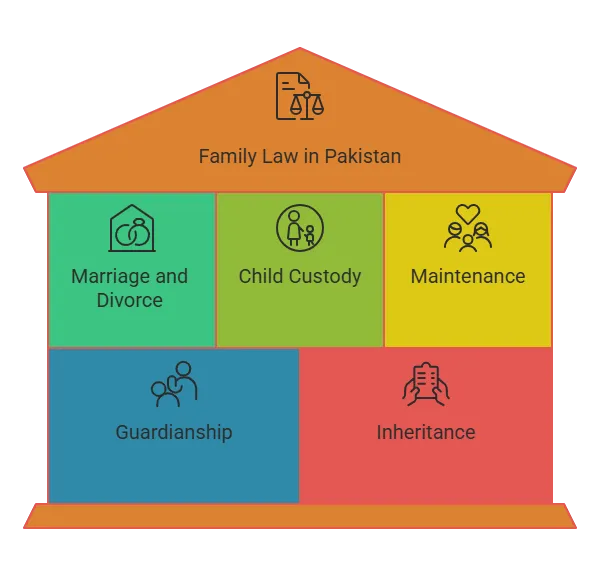
Section 4 of the Muslim Family Laws Ordinance, 1961 is highly significant. It ensures the right of grandchildren to inherit from their deceased parent’s share in the property of grandparents, even if the parent dies before the grandparents.
This law is especially crucial in cases where children lose their parents early. It provides a fair legal path to protect their rights to inheritance, which otherwise might be denied under traditional interpretations.
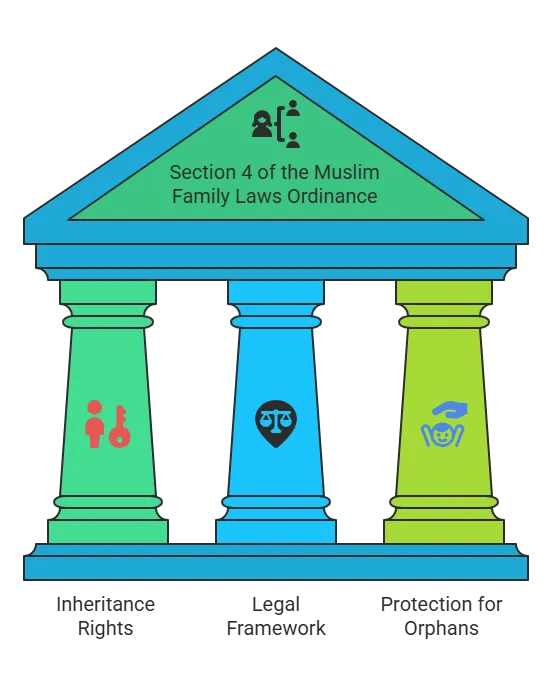
Pakistan does not have a single consolidated “Family Code”, like in some other countries. Instead, family matters are governed by multiple pieces of legislation, including.!
Muslim Family Laws Ordinance, 1961
Family Courts Act, 1964
Dissolution of Muslim Marriages Act, 1939
Child Marriage Restraint Act, 1929
Guardians and Wards Act, 1890
Each of these serves a unique role, ensuring that disputes around marriage, divorce, and family issues are resolved efficiently and in line with Islamic teachings and legal standards.
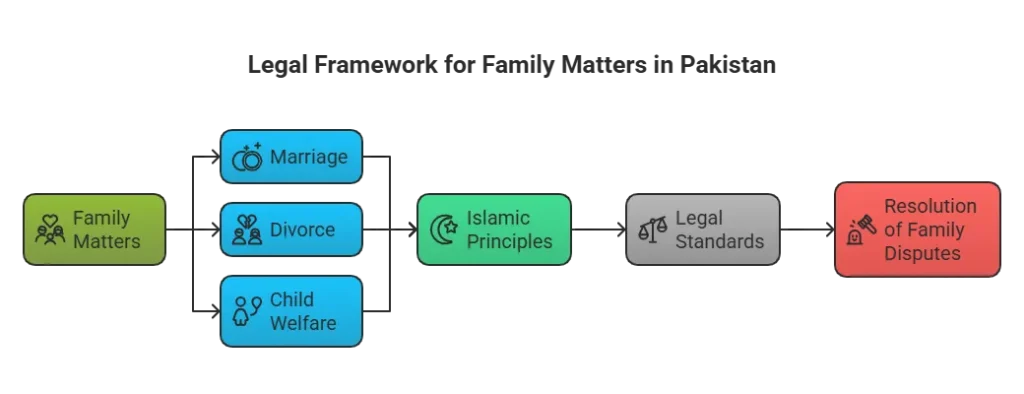
Under Pakistani law, it is the father’s legal responsibility to support his children, financially and otherwise. But there’s no fixed amount for child maintenance. Instead, the Family Court decides based on.
The income and financial standing of the father
The needs of the child (education, food, healthcare)
The lifestyle maintained before separation
In recent judgments, average maintenance amounts range from PKR 10,000 to PKR 50,000+ per child, depending on the father’s earnings. Failure to pay child maintenance can result in arrest or legal penalties.
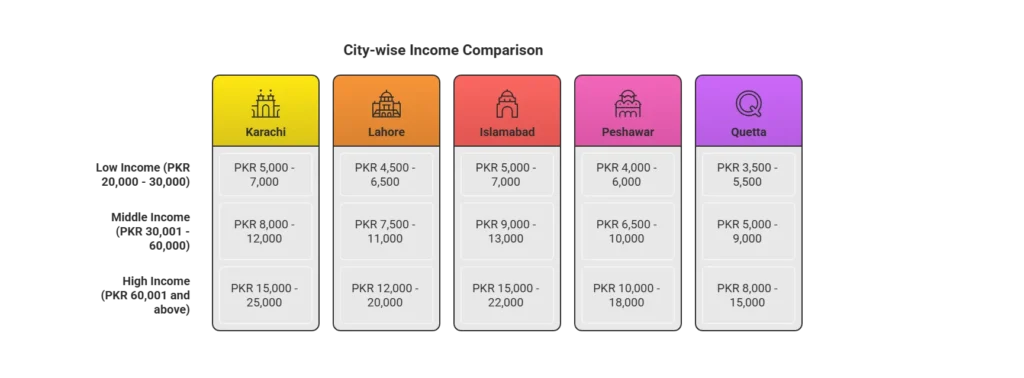
A commonly asked question. According to Islamic Shariah and Pakistani law, your father cannot marry your mother in law. This is due to the concept of prohibited degrees of relationship (Mahram). Once a marital relationship is established, certain relations become permanently non marriageable, even after divorce.
This rule preserves family harmony and moral structure and applies regardless of whether both spouses are alive or divorced.
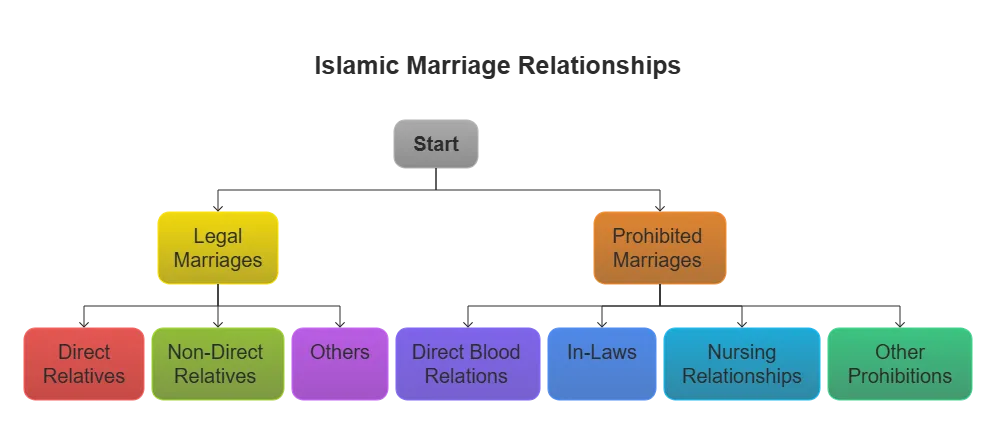
Sadly, yes, in laws can be a significant reason behind marital discord in Pakistan. While they may not directly file for divorce, their undue interference, emotional pressure, or controlling behavior can strain the relationship between a couple.
Common scenarios include.!
Forcing decisions in daily life or financial matters
Pressurizing for dowry or control over wife’s freedom
False accusations and manipulation
Psychological abuse or family pressure from in laws can be grounds for seeking Khula (divorce initiated by a woman) under Pakistani family law.
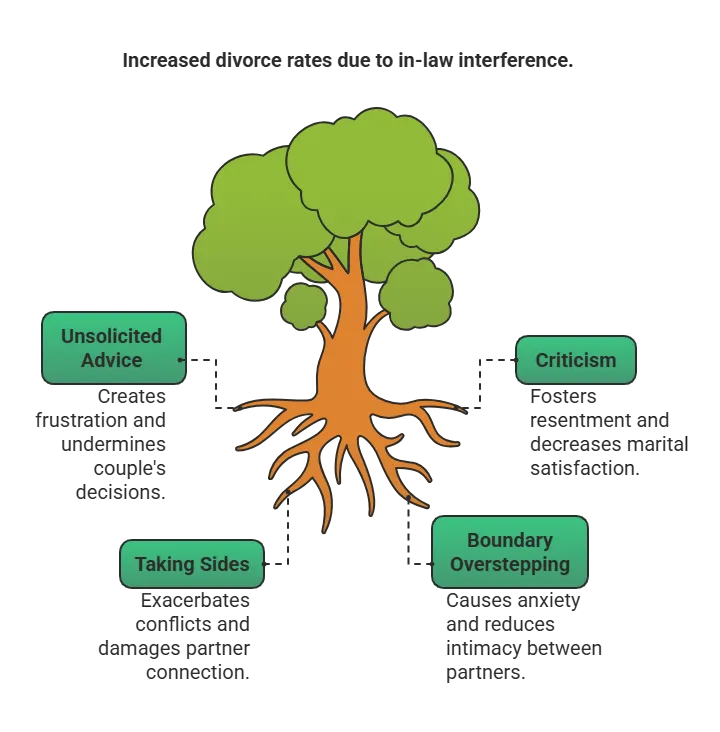
At MAH&CO., we provide expert legal counsel in all areas of family law.
Filing and defending divorce and khula cases
Negotiating and securing child custody and maintenance
Settling property distribution and inheritance
Handling marriage registration, dower, and legal notices
Contesting false domestic violence or dowry allegations
We offer confidential, compassionate, and expert legal help, ensuring that you are fully aware of your rights and protected under the law.
Contact us today for a legal consultation and take the first step toward a better future.
Phone: +92-345-8231881 | +92-300-3444617
Email: a.karim@mahlegal.org | info@mahlegal.org
Family law in Pakistan touches everyone at some point in life. Whether it’s the joy of marriage or the pain of separation, legal clarity can bring peace of mind. If you’re facing any family related legal concern, consult a trusted and experienced family lawyer who can protect your rights and ensure justice.
© 2025 MAH&Co. All Rights Reserved | Disclaimer
